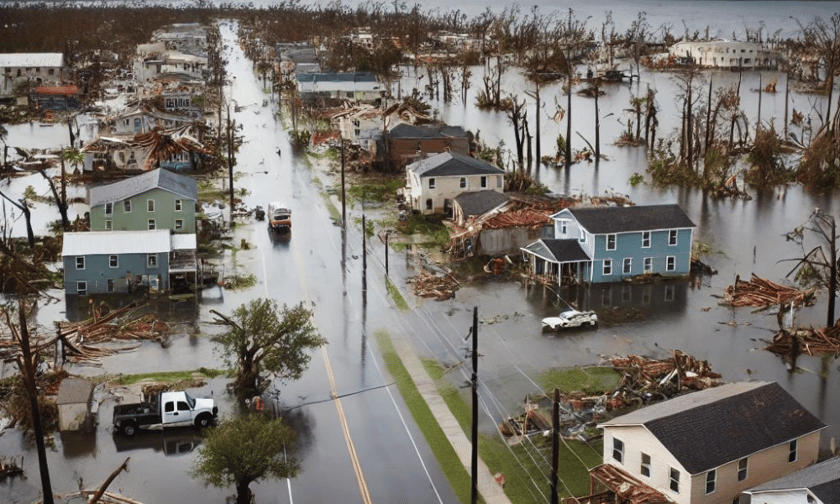Rising uninsured losses from flooding could drive catastrophe insurance coverage program expansions

The numerous disparity between financial and insured losses ensuing from Hurricane Helene may gasoline curiosity in mitigation efforts and community-based catastrophe insurance coverage applications, such because the one presently being examined in New York Metropolis by Swiss Re, insurtech Raincoat, and different companions, in line with Josh Darr, Guy Carpenter’s international head of peril advisory.
Estimates for insured losses from Helene, a Class 4 hurricane, are within the single-digit billions, with Karen Clark & Co. reporting $6.4 billion in privately insured losses throughout 9 states.
In keeping with AM Best, this determine contrasts with financial losses, that are estimated within the triple digits. The insured losses cowl wind, storm surge, and inland flooding damages.
Karen Clark & Co. famous that a lot of the injury occurred removed from the storm’s landfall, with important wind injury reported in Georgia, extra storm surge injury in Tampa, and probably the most extreme inland flooding in North Carolina.
Darr identified that some monetary impacts of the storm are nonetheless unfolding, together with the price of claims changes, even when no payouts are made. He additionally famous the potential for enterprise losses with broader financial penalties.
One instance is the momentary closure of quartz mines in North Carolina’s Blue Ridge Mountains, that are essential to the semiconductor and photo voltaic industries. International supplies provider Sibelco has suspended operations as a result of flooding, energy outages, and infrastructure injury brought on by Helene.
Drawing a comparability to the extreme flooding in Thailand in 2011, Darr highlighted how provide chain disruptions in a single sector can have international ripple results. In keeping with ICEYE, a satellite tv for pc mapping agency, greater than 100,000 buildings from Florida to West Virginia had been impacted by Helene, with not less than 10,000 buildings inundated by 5 toes or extra of water throughout a number of states.
Many of the injury from Helene was brought on by storm surge alongside Florida’s west coast, regardless that the storm remained far out within the Gulf earlier than making landfall on Sept. 26 with winds of 140 mph within the Massive Bend area. Inland flooding additionally affected a number of southeastern states.
Darr instructed that the big variety of properties affected by the storm may drive up the price of investigating claims, even these which might be closed with out cost.
“From an insurer standpoint if there’s clearly a flood loss there are nonetheless adjustment bills to exit and analyze that loss… 100,000 buildings impacted throughout a area can turn into an considerable expense to the insurers,” he mentioned.
As of Oct. 1, insurers had obtained 65,716 claims associated to Helene, in line with the Florida Workplace of Insurance coverage Regulation. This quantity surpasses the roughly 25,000 claims from Hurricane Idalia, which struck as a Class 3 storm final yr, and the almost 22,000 claims from Class 1 Hurricane Debby earlier this yr.
Darr additionally highlighted the rising hole between insured and uninsured losses for flood and rain-related disasters within the U.S., emphasizing that this might encourage the enlargement of insurance coverage options. FEMA experiences that 99% of U.S. counties have skilled a flood since 1996, but solely 4% of house owners carry flood insurance coverage. Regardless of this low uptake, payouts from the Nationwide Flood Insurance coverage Program elevated greater than 660% between 2000 and 2020, rising from $9.4 billion to $62.2 billion, which FEMA attributed to local weather change and rising sea ranges.
Darr pointed to coastal flooding throughout Helene, significantly in Florida, for example of the affect of rising seas.
He additionally famous that the most important discrepancies between financial and insured losses in latest historical past – comparable to in Hurricanes Katrina, Sandy, and Harvey – have all concerned water injury.
What are your ideas on this story? Please be at liberty to share your feedback under.
Sustain with the newest information and occasions
Be a part of our mailing checklist, it’s free!



